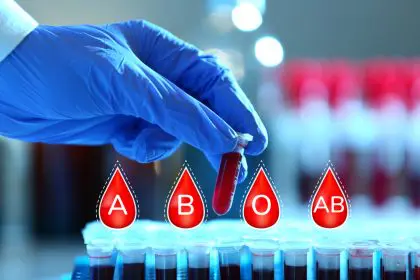Medical emergencies strike without warning. Whether it’s a car accident, severe allergic reaction, or unexpected surgery, having family and friends who know your blood type can significantly impact survival rates. This critical information helps medical teams provide faster, safer treatment during emergencies.
The critical role of blood type in emergency care
Blood type knowledge directly affects how quickly medical teams can respond in critical situations. While emergency rooms often use type O negative blood – the universal donor – in urgent cases, this resource remains limited. Having immediate access to a patient’s blood type allows medical teams to locate compatible blood more quickly, potentially saving precious minutes in life-threatening situations.
Transfusion reactions pose serious risks when patients receive incompatible blood types. These reactions occur when the body’s immune system attacks foreign blood cells, potentially leading to kidney failure or shock. Accurate blood type information from the start helps prevent these dangerous complications.
Blood matching in organ transplants and surgery
Organ transplant success relies heavily on blood type compatibility between donor and recipient. Hearts, kidneys, and livers must come from donors with compatible blood types. In urgent transplant situations, family members who know the patient’s blood type can help medical teams quickly identify potential matches.
Surgical procedures, both planned and emergency, frequently require blood transfusions. Blood loss during surgery demands quick access to compatible blood products. When patients cannot communicate due to unconsciousness or medication, family members who know their blood type become crucial information sources for medical staff.
Pregnancy and blood type considerations
Blood type awareness carries special significance during pregnancy. Women with Rh-negative blood require extra monitoring when carrying babies potentially fathered by Rh-positive partners. This condition, known as Rh incompatibility, can lead to serious complications affecting the baby’s red blood cells.
Healthcare providers can prevent these complications through targeted treatments like Rh immunoglobulin injections, but only when they know about the potential incompatibility early. Family members aware of both parents’ blood types can alert medical staff to this risk, ensuring proper preventive care.
Making blood type information accessible
Creating multiple access points to blood type information increases the likelihood that emergency responders can find it quickly. Medical identification bracelets or wallet cards provide immediate access to this vital information. Many smartphones now include emergency medical information features where users can store their blood type and other critical health data.
Emergency contacts should maintain easily accessible records of blood type information. This includes storing it in phone contacts, emergency documents, and shared family medical records. Regular updates ensure this information stays current and reliable.
Building a blood type aware support network
Beyond immediate family, sharing blood type information with trusted friends and regular contacts creates a wider safety net. These individuals often become first responders in emergencies, making their knowledge of your blood type potentially lifesaving.
Healthcare providers recommend discussing blood type information during routine medical appointments. This helps ensure that both patients and their support networks understand the importance of blood type awareness and know how to access this information when needed.
Taking action for better preparedness
Blood type awareness requires proactive steps from both individuals and their support networks. Regular family discussions about medical information, including blood types, help ensure everyone knows this critical information before emergencies occur.
Medical professionals emphasize that blood type awareness goes beyond knowing your own type – it extends to understanding basic compatibility and knowing where to find this information quickly. This knowledge empowers family members and friends to advocate effectively for patients during medical emergencies.
Looking ahead
The importance of blood type awareness continues to grow as medical treatments become more sophisticated. From emergency transfusions to planned procedures, blood type compatibility remains a fundamental aspect of safe, effective medical care.
By ensuring family and friends know your blood type, you provide them with essential information that could prove lifesaving. This simple step in emergency preparedness creates multiple layers of protection, helping medical teams deliver the right care at the right time when emergencies strike.
This story was created using AI technology.
















